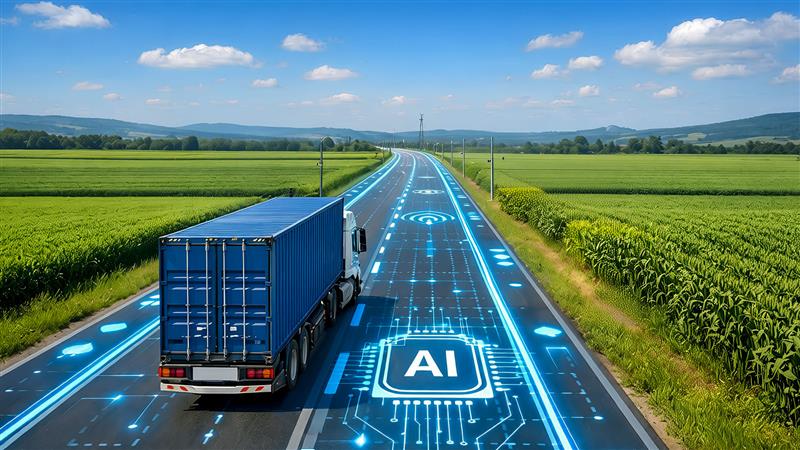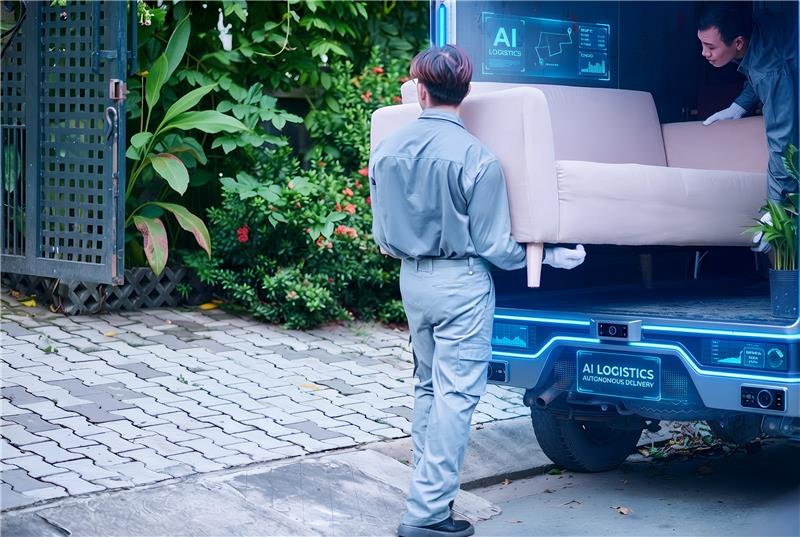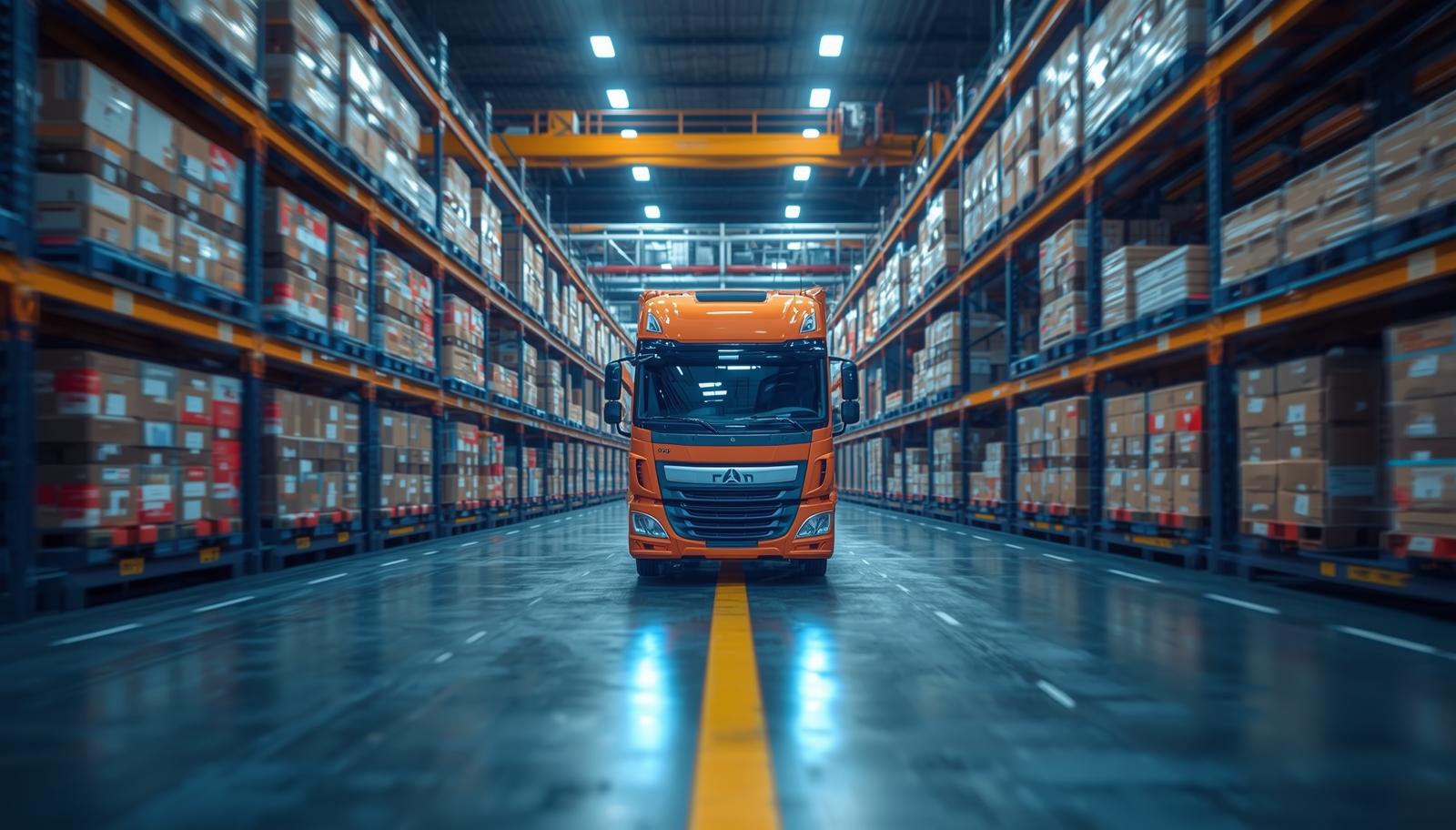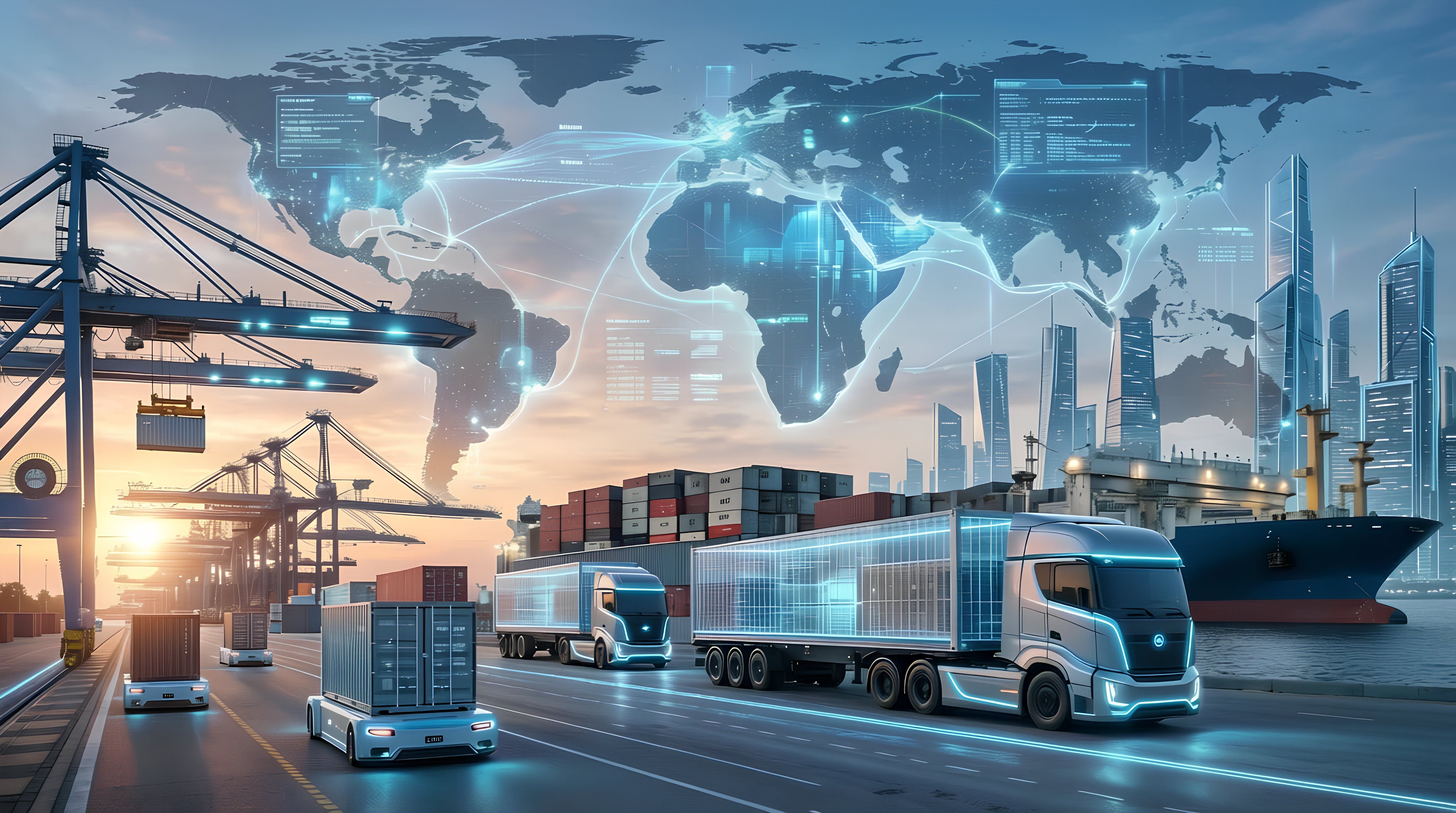
The United Arab Emirates (UAE) is on a fast track to redefine the logistics outlook, not just in the Middle East, but globally, by integrating sustainability at the core of its operations. In a world where environmental concerns are escalating, the UAE’s commitment to eco-friendly logistics practices showcases a forward-thinking approach that combines economic growth with environmental Protection.
Over the past years, the UAE has been working towards pushing sustainability within the country. The UAE Vision 2021 and the Dubai 2040 Urban Master Plan have synthesized some critical efforts under coherence to the UAE Green Agenda 2015-2030, the Paris Agreement, and the UN Sustainable Development Goals (“SDGs”). This has been proven by the great effort from the government, through global participation and its national policies, in response to its great concern about climate change, placing the country as one of the regional leaders in climate action over the last decade.
Let’s take a closer look into the logistics sector of the UAE and some of the forward-looking sustainable practices being implemented, which could be reshaping not just the corridors of commerce in the Middle East, but potentially every corner of the earth. From green transport to energy-efficient warehouses, these are good initiatives, not only to reimagine the UAE logistics landscape as a sustainability story but to lead the way to much-needed greener horizons almost at every turn.
The State of Sustainable Logistics in the UAE
The United Arab Emirates (UAE) has made waves in the field of sustainable logistics as it doubles down on its commitment to environmental sustainability and economic diversification. As the country aims to streamline its carbon footprint and throw its weight behind global sustainability initiatives, the logistics front is the scene of rising innovation and investment in green practices. Here’s an overview of how the UAE is promoting sustainable practices in logistics:
Government Initiatives and Policies
The front-running initiatives about the UAE logistics shift towards sustainability will feature pioneering government policies to entrench eco-friendly practices within the sector. The government initiatives in place to the present encapsulate several key strategies: UAE Green Agenda 2030 and UAE National Climate Change Plan 2017-2050. These strategic frameworks indicate defined goals regarding the reduction of greenhouse gas emissions, increased use of renewable energies, sustainable urban planning, and green building standards.
An outstanding policy, that can be attached to the transport mode, is the development of green transport solutions within the logistics industry. Government market incentives for electric and hybrid cars will involve subsidies, reduced tariffs, as well as the construction of a network of charging stations. The measure would not only help in this shift towards low-emission vehicles but also signal the government’s commitment to delivering sustainable transport infrastructure.
Role of Technology in Eco-friendly Logistics
Technology has proven to be a mainstream player in the UAE’s transition towards sustainable logistics. Advanced technologies such as Artificial Intelligence (AI), the Internet of Things (IoT), and blockchain are being leveraged to optimize logistics operations, reduce waste, and enhance efficiency. For instance, AI and IoT are instrumental in route optimization, helping logistics companies lower fuel consumption and reduce emissions by selecting the most efficient delivery routes. Similarly, blockchain technology is transforming supply chain management, offering transparency and traceability that help reduce the environmental impact of logistics operations.
The latest technological progressions are accompanied by the emergence of smart warehouses, engineered to optimize energy usage and cut down on waste. These warehouses incorporate innovative elements like solar panels, energy-efficient lighting, and automated HVAC systems, which are now customary in newly built facilities. Additionally, the integration of eco-friendly building materials and methods not only lessens environmental harm but also promotes the health and safety of employees while lowering operational expenses.
Public-Private Partnerships (PPPs)
The success of sustainable logistics in the UAE owes much to the effective partnership between the public and private sectors. Public-private partnerships (PPPs) have played an integral role in driving the uptake of green logistics practices. The government and private companies have invested in sustainable logistics projects, such as eco-friendly warehouses and green transportation fleets by pooling resources. These collaborations not only accelerate the shift toward sustainable logistics but also encourage innovation and enhance competitiveness in the industry.
The UAE’s journey toward sustainable logistics reflects its dedication to both environmental preservation and economic progress. By synergizing government initiatives with technological advancements and public-private partnerships, the UAE is setting a new benchmark for eco-friendly logistics operations. This comprehensive approach not only tackles the environmental challenges posed by the logistics sector but also positions the UAE as a global leader in sustainable logistics.
Green Transportation Solutions
Transitioning to green transportation is a key aspect of the UAE’s plan to attain sustainable logistics. Recognizing the substantial contribution of the transportation sector to global carbon emissions, the UAE is leading the way in devising innovative strategies to address this issue. These strategies involve various technologies and methods aimed at lessening the environmental impact of logistics activities, including the integration of electric and hybrid vehicles and the exploration of biofuels and alternative energy sources.
Electric and Hybrid Vehicles in Logistics
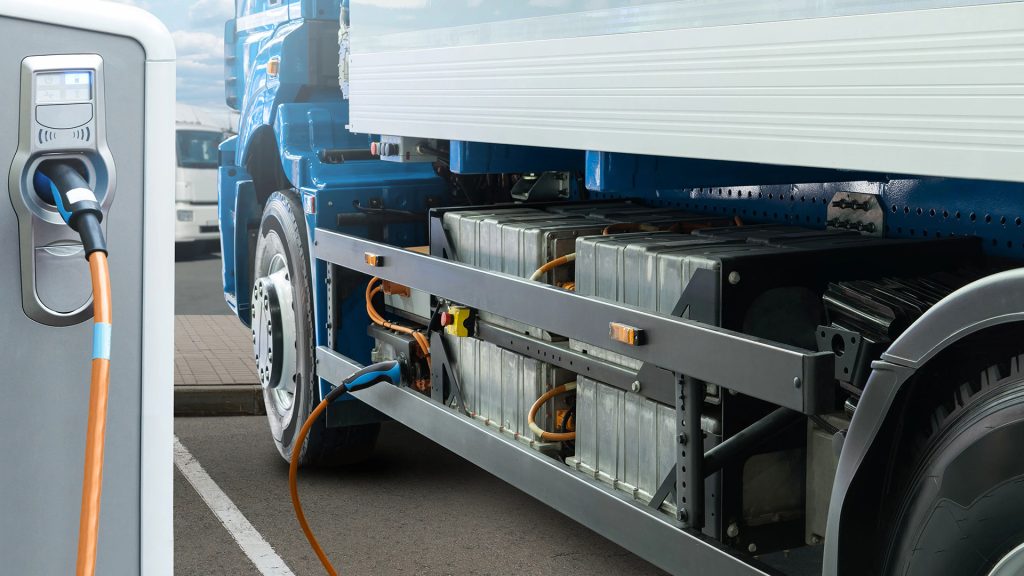
Electric and hybrid cars take a leading position among the green means of transport in the UAE. The government undertakes an essential part in its implementation as various incentives are introduced: from tax exemption to support of the purchase of an electric car and further investment in the nation’s automotive infrastructure. The demand for alternative fuels is an ever-growing phenomenon, especially in the case of electric and hybrid vehicles for logistics companies, as it gives a dual benefit through carbon reductions and from running operational costs throughout the life span of the vehicle.
It almost goes without saying that along with the acceptance of these vehicles is the making of a strong infrastructure for electric mobility. UAE is growing in quick strides towards the electric vehicle charging infrastructure that will assure efficiency when operating logistics fleets across the nation. A holistic approach to this infrastructure development represents UAE’s commitment to creating a sustainable ecosystem for logistics electric and hybrid vehicles by government bodies, private sector partners, and international technology providers.
Biofuel and Alternative Energy Sources for Transportation
UAE is also evaluating the use of biofuels and other forms of alternative energy to run the logistics fleet, along with electric and hybrid options. Biofuels derived from living organisms – such as plants and waste – are a renewable and environmentally less harmful alternative to the use of fossil fuels. Under the current execution of some pilot projects and research initiatives, some of the possibilities and efficiencies related to biofuels and logistics operations will be able to validate very promising outcomes, which can influence a wider application in the short term.
Moreover, there is an increasing trend toward experimentations with hydrogen fuel cells as alternative energy for heavy-duty transportation. The hydrogen fuel cells present a clean solution, emitting nothing else except for water vapor as an exhaust product. Investments in research into hydrogen technology, together with the needed infrastructure, are designed to develop the UAE as a hub for hydrogen-fueled transport, thus further diversifying its Green Transportation Strategy.
Case Studies
The UAE has launched several initiatives to encourage green transport and sustainable development within the region, being one of the largest commitments towards sustainability of the environment and thus bringing down carbon emissions.
- One of the chief concepts guiding these will be the “Green Economy for Sustainable Development” initiative launched to make the UAE a global hub for green economy and sustainability practices. There are various policies and programs in this initiative, which include energy, agriculture, investment, and, most crucially, sustainable transport. It is supposed to bring out the country’s competitiveness and sustainability towards maintaining the environment for the new generation.
- Dubai Carbon offers several case studies, that embody its services for sustainability, among them being the Carbon Abatement Strategy of Dubai, the Carbon Ambassador Programme, as well as EXPO 2020 Sustainability Reports. Other major projects include the UAE State Action Plan for the Aviation Sector, the Dubai Police Low Carbon Initiative, and the RTA Green Economy Framework. These initiatives include projects such as the reduction of carbon emissions, incorporating young people into sustainability, and documentation of the environmental impacts of big events and operations within the UAE.
Energy-Efficient Warehouses
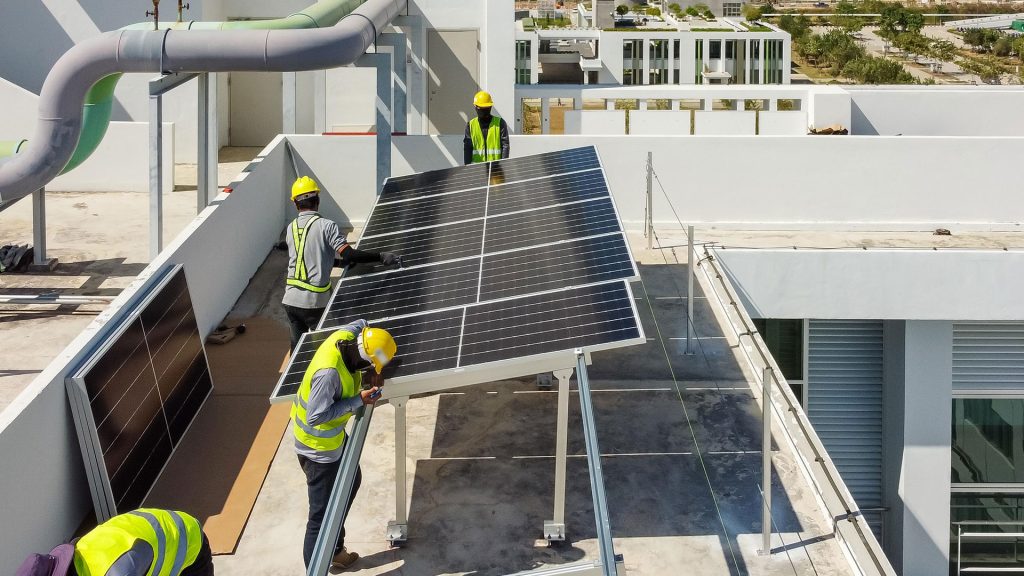
The search for sustainable logistics is focused not only on transportation but also on the very roots of supply chain operations, which are warehouses. The United Arab Emirates is leading the way in not only adopting energy efficiencies but also the sustainability of designs in warehouses and operations, thus pioneering a model that will make both economic benefit and environmental stewardship work in a complementary manner. In this respect, the energy-efficient warehouses are core since they are fitted with modern and advanced technologies as well as practices oriented to keeping and reducing the energy and carbon footprints accumulated by logistics operations.
Innovative Designs and Technologies for Sustainable Warehouses
Architecture is increasingly incorporated in the UAE approach to designing warehouses and increasingly takes the principle of green building to promote energy efficiency and sustainability. Elements key in the design approach to the warehouse that are regularly found include strategic natural light and enhanced insulation that integrates renewable sources of energy, such as solar panels. These designs not only reduce the dependence on artificial lighting and air conditioning but also result in substantial savings in energy consumption.
Technology is an important factor in the function of an energy-efficient warehouse. The operation process and energy use are tracked in real-time through advanced systems of management, such as warehouse management systems and building management systems, for adaptation whenever necessary as required for efficiency. Moreover, it is also evident that technology has cut down the necessity of energy for warehousing processes through automation and robotics and hence helps in better sustainability of the logistics ecosystem overall.
Solar Power and Energy Management Systems
With the UAE’s near-constant sunshine, the potential for using solar power in warehouse operations is virtually limitless. Many logistics companies are equipping their warehouses with solar panel arrays installed on their rooftops. This adds a clean renewable, and almost inexpensive source of power to run its operations on a day-to-day base. Moreover, using the traditional power grid to keep operations running becomes a non-issue for many companies — which translates to long-term cost savings for these companies.
An energy management system serves as the linchpin to maximizing the efficiency of these solar-powered warehouses. All areas of the warehouses’ operations, from lighting and HVAC to the machinery and equipment on the warehouse floor are optimized for energy use by the management system. By carefully tracking and monitoring the use of energy and using its data for predictive analytics, warehouses can significantly cut down on waste and unused power and, at the same time improve their overall sustainability profile.
Challenges and Opportunities
The journey towards sustainable logistics in the United Arab Emirates, while marked by significant advancements and achievements, is not without its challenges. However, these challenges are accompanied by a wealth of opportunities that, if navigated wisely, can propel the UAE even further as a leader in green logistics. Let’s explore the hurdles faced by the logistics sector in adopting sustainable practices, alongside the economic and environmental benefits that these practices offer, shedding light on future trends and opportunities within this dynamic field.
Overcoming Barriers to Sustainable Logistics
The high upfront cost of investment is one of the biggest hurdles companies face when transitioning to sustainable logistics. The eco-friendly technologies they need to adopt — from electric vehicles to energy-efficient warehouse systems — require a significant initial investment. While these technologies often lead to major long-term cost savings and environmental benefits, it’s difficult for many firms to break through the initial financial barrier.
Regulatory hurdles are also challenging. The rate of technological advancement in the field of sustainable logistics often outpaces the existing regulatory frameworks, leading to a mismatch between innovation and policy. This discrepancy can cause uncertainty among logistics companies that are keen to adopt green technologies but are hesitant due to the potential for future regulatory changes.
The complexity of the supply chain also presents a significant challenge. Implementing sustainable practices throughout the entire logistics chain, from the suppliers to the end consumers, demands coordination and cooperation among a wide array of stakeholders. This complexity can hinder the adoption of green initiatives, as changes made by one entity in the chain might require adjustments from others.
Economic and Environmental Benefits
However, the shift towards sustainable logistics presents substantial economic and environmental benefits. Environmentally, the drop in carbon emissions and resource consumption has a significant positive impact on the fight against climate change. Sustainable logistics also helps to improve air quality and reduce noise pollution, in turn enhancing the quality of life in communities surrounding logistics operations.
Economically, sustainable logistics can lead to lower costs over time. Reduced energy consumption can contribute to major cost savings, as businesses often cite freight transportation as one of — if not the — greatest energy expenses. Meanwhile, lower waste due to more careful inventory management can also save businesses thousands of dollars a year. In the city of Chicago alone, sustainable logistics and supply chain management are expected to save nearly $300 million in operating costs and $700,000 in saved time annually.
Future Trends and Opportunities
The future of logistics in the UAE is particularly promising due to the rich potential for sustainable solutions. Autonomous vehicles, drone delivery systems, advanced energy storage solutions, and many other technological achievements promise to make logistics operations more environmentally sound whilst enhancing worldwide efficiency. Circular economy practices are also beginning to make even more sense in the logistics sector. This mostly entails designing waste out of the system and recycling materials in a continual loop, which reduces demand for additional resources and lowers the environmental impact of new products.
Conclusion
The UAE’s progress toward sustainable logistics is not only a clear testament to the country’s dedication to environmental stewardship and economic innovation, but it is also a decisive example of another significant historical trend – how land logistics, particularly when meeting the challenges of arid desert terrain, can drive some of the most dramatic transformations in the global economy.
Despite daunting challenges in the years ahead, the opportunities – both for leadership and for growth – that are being created by the UAE’s ongoing transformation of its logistics and supply chain infrastructure are equally impressive. With continued investment in green technologies, innovative regulatory strategies, and initiatives that enable enterprise and industry-wide collaboration, success will be more than just rewarding, it will be within the UAE’s reach – as a global leader in sustainable logistics.
As we look to the years ahead, it is evident that the journey to greener logistics is not just about the fact that the logistics sector is adopting new technologies, it is about the sector redefining its role in one in which the planet can remain sustainable. The UAE is showing us how to create the most sustainably competitive, and formidable logistics, operations in the world.
About Wahyd Logistics
Learn more about Wahyd Logistics technology-enabled logistics marketplace here. Allowing you to book, track, and manage your shipments with the touch of a button, our transparent, end-to-end logistics management solution caters to a number of industries worldwide.


